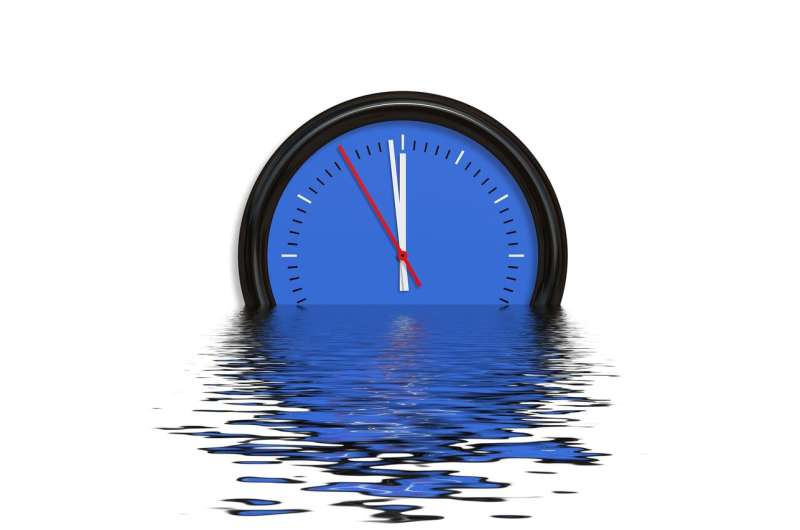Climate change, racism and social justice concerns affecting Gen Z's physical and mental health

As Earth Day is celebrated, Generation Z is grappling with the health of the planet and racism and social justice, according to a new survey.
More than eight out of 10 young Americans say they are concerned about the health of the planet, according to the Blue Shield of California NextGen Climate Survey, which polled participants between the ages of 14-24.
When asked about which issue concerned them the most, the environment and climate change had the second-highest percentage at 47%, behind racism and social justice at 62%.
Black climate change activist Aniya Butler,15, feels the burden of both topics.
"This country has been founded on these unsustainable foundations of systems of oppression like white supremacy, colonialism, capitalism," Butler said. "Climate change intersects with all movements inside the social justice movement."
Butler is the hip hop and climate justice initiative coordinator for the Youth vs. Apocalypse organization, a diverse group of young climate justice activists based in California. She said being an activist and Black gives her motivation because climate change disproportionately affects Black communities.
African American and low-income communities are disproportionately affected by air pollution in the United States, according to an article authored by the Princeton Student Climate Initiative, a student-led environmental Princeton University group.
"Additionally, exposure to poor air quality can cause numerous health problems such as asthma. Approximately 13.4% of African American children suffer from asthma as compared to only 7.3% of White children," the article read.
Hispanic, Black and other racial and ethnic groups are at a greater threat to heat waves, extreme weather events, environmental degradation and subsequent labor market dislocations, according to a study by the Yale Project on Climate Change and the George Mason University Center for Climate Change Communication.
"Since minorities are often disproportionally vulnerable to the impacts of climate change, it is vitally important that concerted efforts be made to engage these communities in both mitigation and adaptation efforts," the study said.
Climate change activist Justin Valenzuela, 22, said he wants to address the inequalities happening in marginalized communities involving the environment.
"With the world we are living in, we cannot ignore what climate change is," Valenzuela said. "We have to understand that climate change has a lot of intersectional issues with social justice, race and gender, white supremacy and a lot of different topics."
Gen Z doesn't have the "luxury to ignore anymore" the effects of climate change due to the prevalence of social media and protests, according to Valenzuela.
"We have to stand up and admittedly take upon the destruction that previous generations and most importantly the wealthy elites and corporations have done," he said.
Eco-anxiety, the fear of environmental damage or ecological disaster, is the term Valenzuela used to describe how he feels.
"I really want to make a change in the world and really address climate change," Valenzuela said. "But at the same time when more research is being done or more actions are being done, sometimes it feels like it isn't enough. And maybe it is always going to be that way."
Dr. Ziv Cohen, a board-certified clinical and forensic psychiatrist, said eco-anxiety could be compared to the emergence of post-traumatic stress disorder in Vietnam veterans a generation ago.
"It's clearly a rising issue clinicians are seeing, but there isn't a lot of data," Cohen said.
Cohen said youth are "explicitly" making the connection between their mental health and the environment. He also said it's a growing area in psychiatry and in his own practice where he sees young patients anxious about the topic.
"The silver lining to this is even though it's very alarming to see eco-anxiety at such epidemic levels, on the other hand, I think it's comforting to see in this young population there's awareness about how climate change is affecting their mental health."
Eco-anxiety can be an additional stressor to someone who is suffering from a clinical mood disorder or anxiety and hard to work with clinically, Cohen added.
"These patients can point to the fact that the world isn't doing very much to address climate change," he said.
"We're in a very complicated and changing world, for example, the pandemic we're living through right now. I think for Generation Z, there are a lot of things they are coping with that their immediate forbearers did not and it is causing a mental health burden on them."
Butler said the youth are calling out power holders about climate change because it's their future at stake.
"We're inheriting a world we won't be able to live in if we don't take action against the climate crisis."
©2021 USA Today
Distributed by Tribune Content Agency, LLC.





















